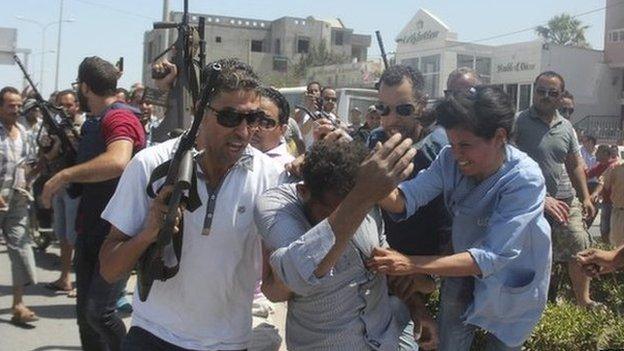France, Kuwait and Tunisia attacks: What we know
- Published
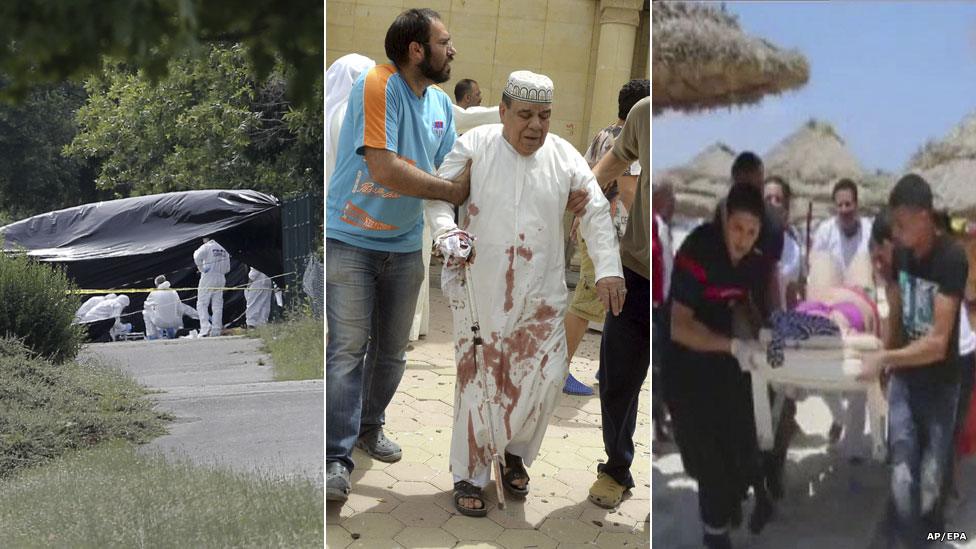
Three suspected terror attacks been carried out within the space of three hours in France, Kuwait and Tunisia.
The incidents, in which scores of people were killed, took place around the time of Friday prayers - typically the most crowded of the week - during the Muslim holy month of Ramadan.
Lyon, France: approx 09:30 local time (07:30 GMT)
The first attack, external took place in France at a gas and chemicals factory in south-eastern France.
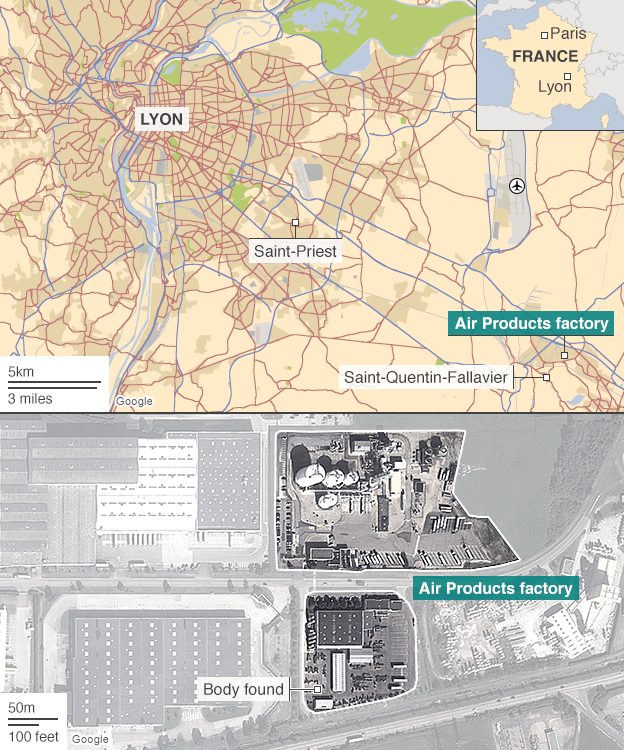
Explosions rocked the US-owned facility in Saint-Quentin-Fallavier, near Lyon, at 09:35 local time (07:35 GMT) on Friday.
A delivery vehicle rammed into the factory entrance and hit gas canisters, triggering an explosion and injuring two people.
One of the men from the vehicle was tackled by a firefighter and held at the scene, while a decapitated body with "inscriptions" written on it was found nearby.
A head was later found on railings at the site, along with flags featuring Arabic writing.
Suspect 'known'
The suspect was later named as Yassin Salhi, a 35-year-old delivery driver from nearby Saint-Priest.
The dead man is thought to have been the suspect's manager, but it is not clear when or where he was killed.
The BBC's Hugh Schofield says the suspect may have killed his boss before driving to the factory, where he put the head on the fence and left the body in the grounds, before driving further into site in the hope of causing an explosion.
Salhi, who is married with three children, was known to the intelligence services.
His wife, who was later taken into custody by police for questioning, told Europe 1 radio that he left to go to work as normal at 07:00 but didn't return as expected.
Mr Salhi's sister and a fourth individual are also being questioned.
French President Francois Hollande said: "The intent was without doubt to cause an explosion. It was a terrorist attack."
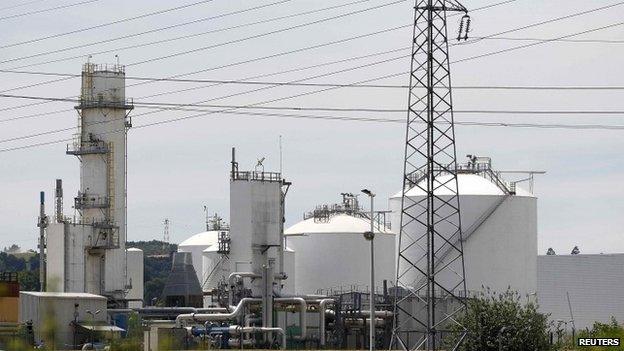
The Air Products gas factory at the industrial area of Saint-Quentin-Fallavier makes gases for a number of industries
Air Products, the owner of the factory where the attack took place, is a US chemical company based in Allentown, Pennsylvania.
Kuwait mosque attack: shortly after midday prayers (approx 09:00 GMT)
The second attack took place on a Shia mosque in the Kuwaiti capital, external more than an hour after the incident in France.

At least 27 people were killed and almost 300 wounded in the suicide bomb blast.
The explosion took place around the time of midday Friday prayers at the Imam Sadiq Mosque in al-Sawaber, a busy area to the east of Kuwait City.
A Kuwaiti MP, who saw the attacker, told Reuters news agency that the mosque was packed with 2,000 people when there was a loud explosion.
Images from security cameras at the huge mosque appear to show the moments before the blast, with the suicide bomber walking briskly in long white robes into a room where worshippers were kneeling in prayer.
The blast created harrowing scenes of carnage in the crowded, stone-built room.
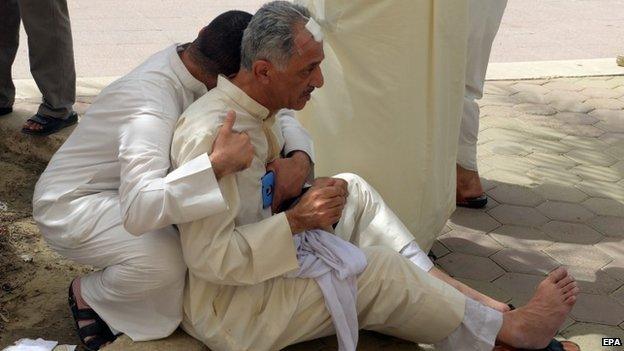
Many were injured in the blast
An Islamic State-affiliated group called Najd Province claimed it was behind the attack. The group has carried out similar attacks in neighbouring Saudi Arabia and Yemen recently.
It named the bomber as Abu Suleiman al-Muwahhid, and accused the mosque of spreading Shia teachings among Sunni Muslims.
Sunni-ruled Kuwait has a large Shia minority, which IS considers to be heretical.
Tunisia beach attack: approx 12:00 local time (11:00 GMT)
The third attack took place close to the Hotel Imperial Marhaba and Hotel Bellevue Park in the popular tourist resort of Port El Kantaoui, to the north of Sousse, external, Tunisia.

At approximately 12:00 local time (11:00 GMT) a gunman pulled a Kalashnikov from a parasol and opened fired on the beach, sending holidaymakers fleeing for their lives.
He then continued his attack - shooting and throwing explosives - at the pool area just outside the hotel and then inside, leaving at least 38 people dead.
Those killed include British, German, Tunisian and Belgian nationals, the country's health ministry said. Thirty-six others were wounded.
Several hotels lead directly onto this stretch of the beach, among them the Hotel Imperial Marhaba.
British holidaymaker Steve Johnson told the BBC: "We were just laying on the beach as usual and we heard what we thought at first was fireworks. But it was soon pretty obvious that it wasn't fireworks, that it was firearms that were being discharged and people screaming and starting to run.
"Me and my friend we just said: 'You know, that's guns, let's go'."
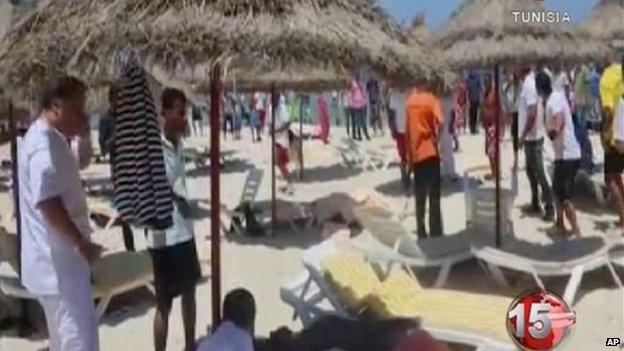
Injured people were treated on the beach
The gunman was later shot dead. Senior Tunisian security official Rafik Chelli told a local radio station that he was a Tunisian student not previously known to the security services.
The attacker was named as Seifeddine Rezgui. Islamic State, which claimed credit for the attack, referred to him by a nom de guerre - Abu Yahya al-Qayrawani.
Other unconfirmed reports suggest a second man has been arrested.
- Published27 June 2015
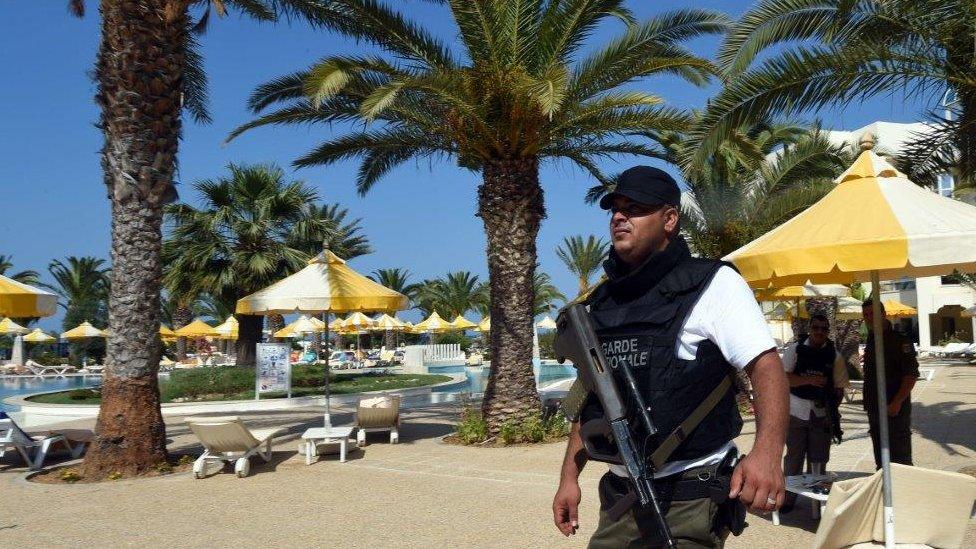
- Published26 June 2015
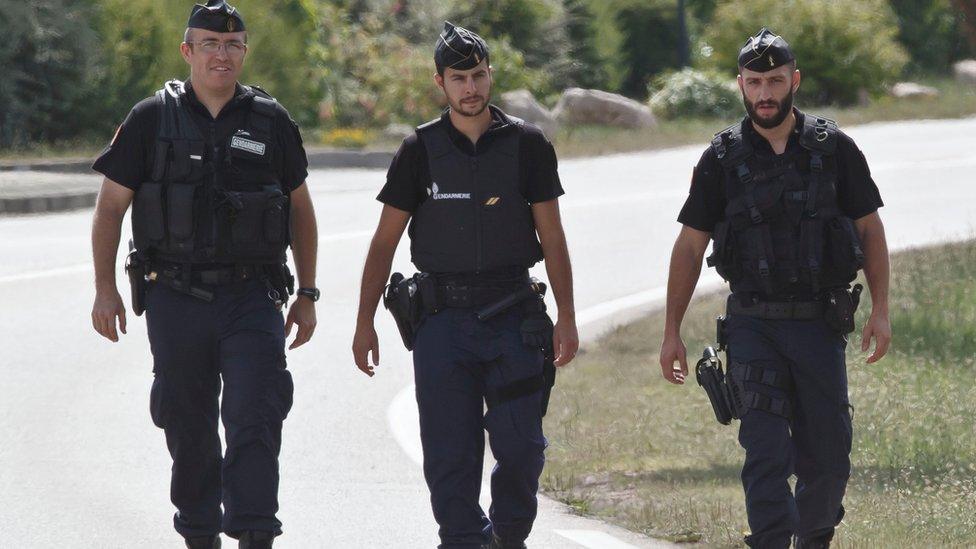
- Published26 June 2015
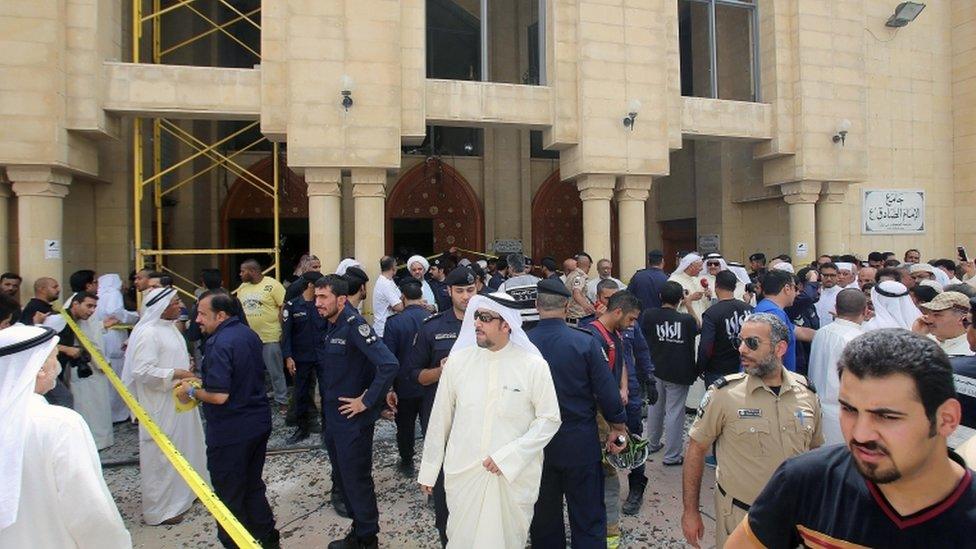
- Published26 June 2015
